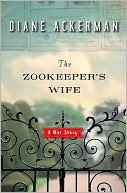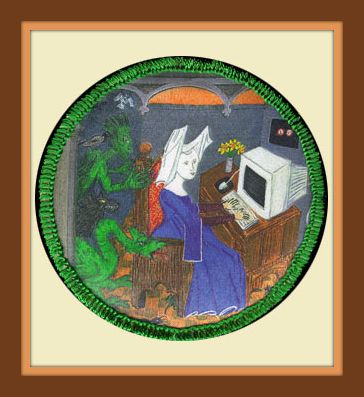 The Book Thief, by Markus Zusak (early Feb, 2008): This was my favorite of the group. It is a YA, fiction book, that utilized a clever technique of death as the narrator. The story takes place in Germany among Germans. Interesting to look at WWII (and the toll it takes) through the eyes of normal Germans. Death has a number of interesting asides which I really liked--unlike other books with asides, I found it didn't distract from the book, but added to it. The characters were interesting and well developed. There were a number of tender relationships among the characters too. Liesel is the main character, and is the book thief. She steals her first book at the grave site of her younger brother, and goes on to steal a few more. Later she learns to read, and her relationship with books and words is central to the theme of the book. By stealing words, she is symbolically able to control a world that has been beset by the subversive and destructive propoganda of the Nazis.
The Book Thief, by Markus Zusak (early Feb, 2008): This was my favorite of the group. It is a YA, fiction book, that utilized a clever technique of death as the narrator. The story takes place in Germany among Germans. Interesting to look at WWII (and the toll it takes) through the eyes of normal Germans. Death has a number of interesting asides which I really liked--unlike other books with asides, I found it didn't distract from the book, but added to it. The characters were interesting and well developed. There were a number of tender relationships among the characters too. Liesel is the main character, and is the book thief. She steals her first book at the grave site of her younger brother, and goes on to steal a few more. Later she learns to read, and her relationship with books and words is central to the theme of the book. By stealing words, she is symbolically able to control a world that has been beset by the subversive and destructive propoganda of the Nazis. The Mascot, by Mark Kurzem (Feb 2008): This is the story of a son--the author--who helps his father unwravel the story of his childhood during WWII. The father is Jewish and his village in Belarus was annihilated when he was 5 or 6 years old. He escaped into the woods and was later picked up by a brigade of Latvian soldiers. He becomes their mascot--complete with full SS uniform dress. Burdened by guilt and shame, the father has kept the secret of his childhood for years and finally unloads on his son. But, he is unable to remember key pieces of information about himself, including the location and name of his village and his given and family name. With the son's help, they look for evidence to validate the father's memories and fill in the pieces. This is in a similar vein to The Lost, but not as well written and not as well told.
The Mascot, by Mark Kurzem (Feb 2008): This is the story of a son--the author--who helps his father unwravel the story of his childhood during WWII. The father is Jewish and his village in Belarus was annihilated when he was 5 or 6 years old. He escaped into the woods and was later picked up by a brigade of Latvian soldiers. He becomes their mascot--complete with full SS uniform dress. Burdened by guilt and shame, the father has kept the secret of his childhood for years and finally unloads on his son. But, he is unable to remember key pieces of information about himself, including the location and name of his village and his given and family name. With the son's help, they look for evidence to validate the father's memories and fill in the pieces. This is in a similar vein to The Lost, but not as well written and not as well told. The Zookeeper's Wife, by Diane Ackerman (Mar 2008): This is the recounting of a Warsaw couple who prior to WWII took care of the zoo there. When Germany attacked and took over Poland and the zoo was mostly destroyed, they started working in the underground and provided refuge at the zoo and in their home to many different Jews (for various periods of time) over the course of the rest of the war. Ackerman tended to wade off into tangents that I thought distracted from the story line of the book. I liked it ok, but not as much as I thought I would. It was interesting to learn about Warsaw and what happened there during the war.
The Zookeeper's Wife, by Diane Ackerman (Mar 2008): This is the recounting of a Warsaw couple who prior to WWII took care of the zoo there. When Germany attacked and took over Poland and the zoo was mostly destroyed, they started working in the underground and provided refuge at the zoo and in their home to many different Jews (for various periods of time) over the course of the rest of the war. Ackerman tended to wade off into tangents that I thought distracted from the story line of the book. I liked it ok, but not as much as I thought I would. It was interesting to learn about Warsaw and what happened there during the war.
Thursday, March 13, 2008
Three Holocaust Books
Labels:
Off the Stacks
Subscribe to:
Post Comments (Atom)

No comments:
Post a Comment